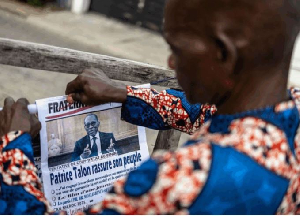By Abubakar Mohammed Marzuq Azindoo, Coordinator of Students and University Relations, University of Applied Management (UAM), Germany – Ghana Campus, McCarthy Hill, Accra and Tamale
Email: azindoo200@gmail.com Tell: 0244755402
INTRODUCTION
The political atmosphere of Mother Ghana has become so partisan that semantic concerns in the country are being addressed by politics. Political spin doctors have arrogated to themselves the power to define certain words for Ghanaians, especially users of English Language. This they do not in an effort to enrich political communication, but in an attempt to score cheap political marks at the expense of semantic correctness. The result of this trend is abuse of words and threat to national unity.
Prominent among the words currently suffering the politico-linguistic abuse is the noun TRIBALISM. As a student of Language Education, I humbly assume a responsibility to liberate the word from the abuse by political spin doctors and their paymasters. Certainly, my task is a linguistic discourse not a partisan project. Therefore, my technique is semantic analyses instead of political insults.
SEMANTICS
Semantics is a branch of linguistic that deals with the meanings of words. Although in usage context influences meaning, the dictionary remains the primary source of the meaning common to all communicators – speakers or writers. Dear reader, let us then listen to the meaning of TRIBALISM according to a sample of dictionaries:
• Loyalty to a tribe or tribal values – Collins English Dictionary. (2015).
• Behaviour and attitudes that are based on strong loyalty to your tribe – Longman dictionary of contemporary English. (2015).
• A strong sense of identifying with and being loyal to one's tribe, group, etc. - Webster's New World College Dictionary. (2010).
• The state of existing as a tribe, or a very strong feeling of loyalty to your tribe – Cambridge Advanced Learner’s Dictionary. (2015).
• The behaviour and attitudes that stem from strong loyalty to one’s own tribe or social group – Oxford Dictionary of English. (2015).
NOTE: It is important to state that the above mentioned dictionaries contain other definitions of TRIBALISM. However, the selected ones are in line with the context in which the word is being (mis)applied in Ghana’s contemporary political communication.
MORPHOLOGY
Morphology in Linguistics simply means the form and structure of words. It is obvious that morphological analysis of TRIBALISM can enhance our understanding and usage of the word. It will also help us appreciate how TRIBALISM is, indeed, abused in the country’s political discourse. Morphologically, TRIBALISM is made up of three morphemes: TRIBE [Free morpheme], AL [Bound morpheme], and ISM [Bound morpheme]. It is significant to assert that the two bound morphemes are indicators of relevant grammatical concerns. The morpheme AL is an adjectival indicator – helping us to achieve the adjective form of TRIBE which is a noun as the root. The morpheme ISM is a nominal (noun) indicator – used to create another noun form of TRIBE with a distinct meaning. Obviously, when TRIBALISM is broken into analytical pieces we have TRIBE [noun], TRIBAL [adjective] TRIBALISM [another noun]. The process can continue to achieve other derivatives: TRIBALISTIC [another adjective], TRIBALIZE [verb], TRIBALIST [another noun].
DISCUSSION
In the light of the above semantic and morphological facts, it can be deduced that TRIBALISM suggests the following:
• A degree of bias or discrimination in relation to a TRIBE.
• A sense of loyalty to a TRIBE.
• A sense of support for a TRIBE.
• A sense of relationship with a TRIBE.
• A sense of solidarity with a TRIBE.
• A sense of dependency on a TRIBE.
If that is the case, it stands to reason that any issue concerning TRIBALISM must have a direct link to an identifiable TRIBE. This implies that the issue should either be in favor of or against a particular TRIBE. The issue should have nothing to do with geographical locations like NORTH or SOUTH. The issue should have nothing to do with any political parties such as New Patriotic Party (NPP) or National Democratic Congress (NDC). The issue should have nothing to do with any state policy for socio-economic development, such as Northern Development Authority (NODA) or Savannah Accelerated Development Authority (SADA).
Based on this premise, I am sorry to inform the political spin doctors that their application of the word TRIBALISM is semantically offensive and politically irresponsible. I contend that if President John Mahama goes to the North and appeals for the votes of NORTHERNERS, that cannot amount to tribalism because NORTH is NOT a TRIBE but a geographical location inhabited by many TRIBES including SOUTHERN TRIBES.
If former President J. A. Kuffuor established Northern Development Authority (NODA) it could not be an act of TRIBALISM, since it was not in any case related to any TRIBE but a section of Mother Ghana. If NPP flag bearer Nana Akuffo Addo suggests a Northern Development Fund, it cannot constitute TRIBALISM, since the fund is not meant for the development of a particular TRIBE in the NORTH. In all these scenarios the issues involved have no morphological root to or semantic relationship with the word TRIBE, and therefore do not fall within the ambit of TRIBALISM. At worst, they could be described as REGIONALISM, which is simply defined as a feeling of loyalty to a particular part of a country.
It is true that there are dialectical similarities between some TRIBES in the NORTH. For instance, both Dagombas and Frafras refer to “my brother” as MMABIA. The only difference is that in Dagbani (Languge) there is no stress in pronunciation, while the Frafra pronunciation of the same word is done with a downward stress. Again, we have PAGA (woman) in Dagbani and POGA (woman) in Mampruli – the language of Mamprusis, Doo (man) in Dagbani, DUAA (man) in Walle – the language spoken by Walas. However, these dialectical similarities cannot justify lumping (together) all the people of NORTHERN origin as one TRIBE. Similarly, the dialectical similarities between Twi and Fante do not make Ashantis and Fantes one TRIBE.
While there are also instances of the misapplication of TRIBALISM in relations to people in the SOUTH, two TRIBES in the sector are seemingly the major victims. These are Ashantis and Ewes. It is not uncommon to hear flat statements such as “Aahantis are very TRIBALISTIC” and “Ewes like TRIBALISM paaa!” These statements remind me of the Logical Fallacy of Generalization in Academic Writing. Sometimes such statements are in response to perceived or real misconduct of one or two Ashantis or Ewes. But rationally, can one or two Ashantis represent the whole Asante Kingdom? Should ASANTEMAN be held responsible for the misconduct of one or two Ashantis? Should the whole EWELAND be blamed for the misbehavior of one or two Ewes?
All Ghanaian TRIBES are endowed with certain values relevant to national development. As an illustration, a typical Ashanti is known for his or her entrepreneurial mastery, and Ewes are blessed with hardwork. Most TRIBES in the NORTH are respected for hardwork and loyalty. Why can’t these political spin doctors and their paymasters emphasize the positive attributes of the various TRIBES and exploit them for national progress and unity in diversity? How can any political party rule a country threatened by TRIBAL sentiments?
CONCLUSION
To sum up, I humbly state that this piece is not to deny isolated instances of TRIBALISM in Ghana. However, I maintain that the way TRIBALISM is applied in the political circles is not only subversive of national cohesion, but also injurious to semantic decency. I therefore appeal to political communicators to consider national interest and semantic norms in using the sensitive word that has already thrown some African countries into chaos. Besides, I urge the citizenry to name and shame politicians using TRIBALISM for their parochial interests. In a spirit of patriotism, all of us Ghanaians, irrespective of our political affiliations, must resist the misapplication of TRIBALISM by politicians at all times. This proposed collective action will help maintain national stability, identity, unity, and prosperity.
God bless our homeland Ghana.
REFERENCES
Anderson, S. R. (1992). A-morphous morphology. Cambridge: Cambridge University Press.
Cambridge Advanced Learner’s Dictionary. (2015). Cambridge: Cambridge University Press.
Collins dictionary of English. (2015). London: HarperCollins.
Longman dictionary of contemporary English. (2015). London: Pearson PLC.
Davis, S.,& Brendan, S. G. (eds.). (2004). Semantics: a reader. Oxford: Oxford University Press.
Dowty, D. R. (1979). Word meaning and montague grammar. !! Dordrecht: Reidel.
Longman dictionary of contemporary English. (2015). London: Pearson PLC.
Oxford Dictionary of English. (2015). London: Oxford University Press.
Portner, P., & Barbara, H. P. (eds.). (2002). Formal semantics: the essential readings. Oxford: Blackwell.
Sekyi-Baidoo, Y. (2002). Semantics: an introduction. Kumasi: Willas Press Ltd.
Webster's New World College Dictionary. (2010). Springfield, Massachusetts: Merriam-Webster, Inc.
Opinions of Monday, 23 March 2015
Columnist: Azindoo, Abubakar Mohammed Marzuq














